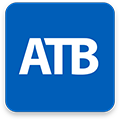Navigating economic shifts is a skill set every small business owner must master. From global market fluctuations to regional trends, the ability to adapt is crucial for survival and growth. In the ever-changing seas of commerce, it's not about trying to control the waves but rather learning to ride them with agility.
Let's explore strategies for your small business to thrive amid economic volatility.
Strategies
Embrace flexibility
The first step in adapting to economic shifts is accepting that change is inevitable. Small businesses like yours are inherently more nimble than your larger counterparts, making you better equipped to pivot when necessary.
Embrace flexibility in your business model, products and services. For example, a small bakery noticing a decline in foot traffic due to an economic downturn could introduce catering services for events and parties to tap into a new revenue stream. Or maybe a boutique clothing shop that’s experiencing slower sales could implement seasonal clearance promotions to move inventory and generate cash flow.
Keep your finger on the pulse of market trends and be ready to adjust your strategies accordingly. Have there been any changes in your industry lately? What about changes on a global scale—namely social, economic and political?
Review your budget
Identify your fixed and variable costs so you can understand the reality of where your money is going and know how much flexibility you have in addressing economic shifts. Have your previous budgets worked?
Regularly analyze your cash flow to find opportunities to cut costs or find other ways to generate revenue. Calculating your break-even point is another useful tool to find how much revenue you need to cover costs and become profitable. Where does your debt sit?
Diversify revenue streams
Relying too heavily on a single revenue source can leave your business vulnerable to economic downturns. Diversify your income streams to mitigate risk and increase stability. After researching, you can explore new markets, monetize your social media accounts, invest in passive income streams, and develop complementary, custom or subscription-based products or services.
By diversifying, you can better withstand fluctuations in any one market or industry.
Build a resilient supply chain
A robust supply chain is essential for weathering economic storms, so identify potential vulnerabilities in it and take proactive steps to reduce risks. Cultivate relationships with multiple suppliers, maintain buffer inventory and consider alternative sourcing options. Are there any partnerships you can build to save on costs?
By building resilience into your supply chain, you can minimize disruptions and keep your business running smoothly.
Stay agile
In a volatile economy, agility is your greatest asset. Stay attuned to market changes, and be prepared to adjust your tactics in real time. Monitor key performance indicators—like your customer retention rate, website traffic, inventory turnover or gross profit margin—regularly, and be ready to pivot if necessary.
Whether it's shifting marketing strategies, adjusting pricing or launching new products, agility allows you to stay ahead of the curve and capitalize on emerging opportunities.
Is your pricing strategy working for you?
Focus on customer needs
Your customers are your most valuable asset, especially during uncertain times. Proactively collect and listen to their feedback, anticipate their evolving needs and tailor your offerings accordingly. Provide exceptional customer service and build strong relationships to foster loyalty and repeat business. You can even directly ask customers what’s working about your business and what’s not. Can you implement a loyalty program? How can you boost their awareness of your brand? Are there ways to make your products and services more affordable?
By staying customer-centric, you can position your business for long-term success—regardless of economic fluctuations.
What should you ask your customers?
Invest in innovation
Economic shifts often create new opportunities for innovation and growth, so invest in research and development, technology upgrades and process improvements. Look for ways to differentiate your business from competitors. Can you hire forward-thinking, creative employees?
By innovating proactively, you can future-proof your business and stay competitive in any economic climate.
Seek professional guidance
Don't be afraid to seek outside expertise when handling economic uncertainty. Consult with financial experts, industry professionals and business mentors to gain valuable insights. Surround yourself with a trusted network of advisors who can provide guidance and support as you navigate the ups and downs of entrepreneurship. What consultants do you already know?
For tailored advice for your small business, make an appointment with an ATB business advisor.
Recap: Combining skills
You can’t do the above strategies all at once, so pick one or two to explore deeply. If you try to do them all simultaneously, you’ll likely get overwhelmed, paralyzed by choice and then do nothing.
Adapting to economic shifts requires a combination of resilience, agility and strategic foresight. While you can't control what happens around you, you can control how you respond. By embracing flexibility, budgeting, diversifying revenue streams, building a resilient supply chain, being responsive, focusing on customer needs, investing in innovation and seeking professional guidance, you can set yourself up for success in an ever-changing economy. With the right mindset, you can not only weather economic turbulence but also flourish in it.
